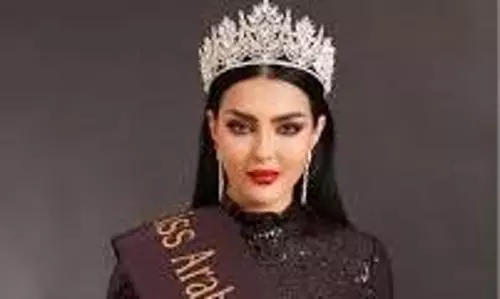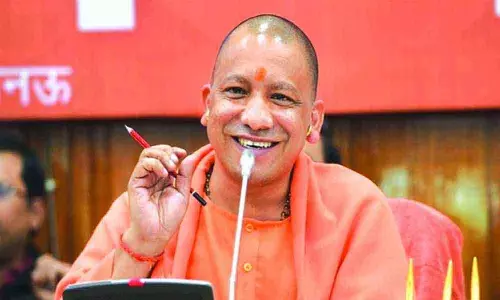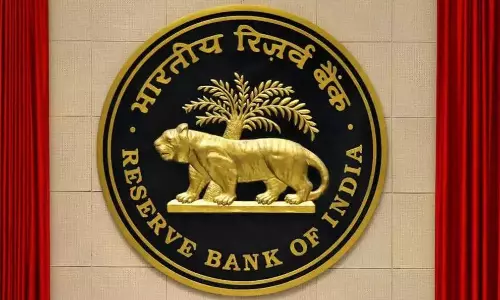
Kathua: the lasting beacon of justice
text_fieldsThe special fast-track court in Pathankot, Punjab has awarded life imprisonment to three, and handed five-year jail terms each to three others, for gangraping and murder of an eight-year old girl from Kathua, Jammu-Kashmir.
The gram mukhya and retired government employee, 61-year old Sanji Ram, friend of Ram's nephew Parvesh Kumar, Special Police Officer Deepak Khajuria are the ones sentenced to life term. Special Police Officer Surender Verma, Head Constable Tilak Raj, Sub Inspector Anand Datta are to serve five years in jail. In the case that attracted the widest national attention after the Nirbhaya case in Delhi, and thus created popular rage, the culprits were caught and convicted within one and a half years, which goes to the credit of the justice system. In the background of abuse and torture rising in the country even after the Kathua incident, the severe punishment imposed on the accused without much delay should serve as a warning to those who attempt to commit such heinous crimes.
It was on 10 January last year, that the eight-year old girl from the nomadic Bakarwal tribe of Kathua district in Jammu region was abducted, detained in the village temple for a few days, subjected to gang rape and then killed. The victim, who was first starved and then left weak through drugs was subjected to carnal onslaught and then strangulated to death. After that her head was hit with heavy stones. The companions of the devil did not stop before throwing her mutilated body into the forest. Only after a week, on 17 January was her dead body found in a mutilated form from the forest. The fierce public outrage spread from Jammu all over the country. After three days, police arrested the juvenile who was accused in the murder. The uncle of the boy and the poojari of the temple, Sanji Ram, and special police officers, and the accomplice of the guilty juvenile, Parvesh Kumar were charged in the FIR as direct perpetrators of the crime. Police officials Tilak Raj and Anand Dutta were found guilty of suppressing the information and destroying decisive evidence after taking a bribe of four lakh rupees. Sanji Ram's son Vishal who was arrested earlier, was acquitted by the court for want of sufficient circumstantial evidence.
When the girl went missing, her parents informed the police, but the police refused to move. As the news spread and protests started rising, the police arrested the minor culprit. But the police tried to put all the blame on the juvenile and let the real culprits go scot-free. And it was only after the Crime Branch started the probe that shocking details emerged. It transpired then that the eight-year-old was a victim of the conspiracy to scare and drive away from the area the Muslim Bakarwal and Gujjar tribes, who were a majority in the region. The culprits, right from Sanji Ram, who was also the temple poojari, upto his nephew Parvesh Kumar had harboured a racial prejudice against the Bakarwal community. With the culprits being caught, politicians and lawyers in Jammu, taking sides racially, came to protect the criminals. Leaders of the ruling coalition party BJP themselves deepened the racial chasm based on the religion and caste of both the victim and the guilty. It was disturbing to BJP that the minority Bakarwal community had an upper hand in a few seats in Jammu. In a protest march taken out in favour of the accused, and in the name of patriotism, BJP leaders and ministers lined up with communal slogans and provocative statements. There were also threats and attempts of assault on the lawyers who appeared for the victim as also on the victim's parents. At the end, the victims approached the Supreme Court which ordered the case to be transferred to the Pathankot court. And it was after a trial held behind closed doors under tight security that the district sessions judge Tejwinder Singh declared the sentence on Monday.
As pointed out by the All-Tribal Co-ordination Committee - which worked diligently for the conduct of the victim's case against death threats and manhandling - the Kathua case verdict reinforces the people's trust in the democratic system and judiciary of the country. The court has also made a judgement against the communal culprits who, instead of handling and taking on a macabre crime for what it is, paint everything in the colours of religion and race of the victim and the hunter. The Kathua judgement also comes amidst the reverberations of a shocking incident in Aligarh, where a gruesome murder took place of a two-year old in an act of vengeance at the hands of a few fiends. But as in Kathua, in Aligarh too the the communally charged politicians were bent on communalising the issue rather than bringing the culprits before law. Crimes and criminals in fact have only one religion and race, and that is of the devil. The only way to take on the devils of the society and their acts is for the government and judiciary to scrupulously intervene without fear or favour, and ensure that severe punishment is meted out to the accused. And for that, may the rays of justice radiating from the Pathankot court live undiminished.























